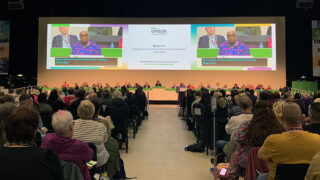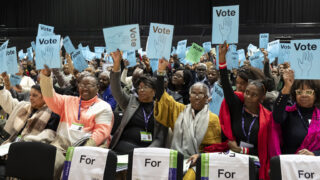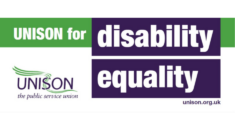The government’s economic strategy, centred on austerity and cuts to public services, has deepened the economic crisis and hit the living standards of many people, especially those in the Black community.
Black workers are usually the first to lose their job in a recession. Unsurprisingly, the UK’s latest recession has been no fairer.
UNISON research into the impact of cuts on Black council workers showed just how public sector cuts hit Black people hard.
Job cuts, pay freezes, and attacks on pensions and on public services have piled on the pressure, contributing to a situation where unemployment among Black people is running at 14.7%.
Black people’s average wages are lower than those for the workforce in general, and the Black community suffers from some of the highest levels of poverty and deprivation.
Research shows that around two-fifths of Black people live in a low-income household – twice the rate for white people.
Surveys also show that Black people often struggle with unequal access to education, health care, social services, housing and other key services.
In one council, Black women accounted for 23% of redundancies but were only 5% of the workforce
Public services are a key employer for Black people in the UK, which means the cuts and job losses have had a disproportionate impact on Black workers.
UNISON conducted research to find out the real impact of public service cuts on Black workers in London councils.
While the figures might not surprise many, our findings are still shocking: In 17 of the capital’s 32 councils, Black workers unfairly bore the brunt of the cuts.
In one council, Black workers made up just 31% of the workforce but 63% of redundancies.
These figures also have another story to tell – how local cuts have particularly affected Black women.
Black women were disproportionately affected by job cuts in 12 London local authorities. In one council they accounted for 23% of redundancies but were only 5% of the workforce.
In another council, Black women made up a quarter of the workforce but almost half – 49% – of redundancies.
It was also clear that in most London councils – 21 if 32 – Black workers in higher pay bands were losing their jobs in the highest numbers.
These redundancies undo decades of work by anti-racist activists to improve the representation, career progression and promotion of Black workers.

UNISON believes this research highlights the situation across the UK and reflects the experience of Black workers in local government.
The research was carried out as part of UNISON’s work on ‘Challenging Racism in the Workplace’, which for the last few years has directly focused on defending public services and fighting for our members’ jobs and conditions of service.
Using evidence of inequality and its disproportionate impact on Black members to negotiate, bargain, organise and campaign on race equality is at the heart of challenging racism in the workplace.









